Welcome to 2025, where the future of living is seamlessly integrated with technology. Smart home automation, once a futuristic concept, is now a cornerstone of modern households, offering a myriad of advantages that enhance daily life. From sophisticated security systems to intelligent energy management, the smart home automation benefits are more profound and accessible than ever before. This article delves into the top 10 ways smart home technology is revolutionizing our homes, providing a detailed look at how these innovations contribute to comfort, efficiency, and peace of mind. As of 2025, a remarkable 63% of US households have embraced at least one smart home device, indicating a widespread adoption of these transformative technologies.
What is Smart Home Automation?
At its core, smart home automation refers to the integration of devices and systems within a residence that can be controlled remotely or programmed to operate automatically. This interconnected ecosystem leverages the Internet of Things (IoT Devices) to create a cohesive environment where everything from lighting to climate control can be managed with ease. Key entities like Voice Assistants (e.g., Alexa, Google Assistant) serve as central command centers, while advancements like the Matter Protocol ensure seamless communication between various brands and types of IoT Devices. Understanding `how smart home works` is essential to fully appreciate the profound advantages it offers, transforming a conventional house into an intelligent, responsive living space.
The Top 10 Smart Home Automation Benefits in 2025
The advantages of living in a connected home extend far beyond mere novelty. In 2025, smart home technology benefits are delivering tangible improvements to quality of life, offering solutions for everything from mundane tasks to critical safety concerns. Here’s a breakdown of the leading benefits driving the widespread adoption of smart living:
1. Enhanced Home Security: A Primary Smart Home Advantage
One of the most compelling reasons homeowners invest in smart technology is for superior security. Smart Security Systems offer a comprehensive layer of protection that traditional systems simply cannot match, answering the question, “Does smart home technology improve security?” These advanced systems often include smart locks, video doorbells, motion sensors, and surveillance cameras that provide real-time monitoring and alerts directly to your smartphone. The growth in this sector is significant, with smart security systems installed in US homes seeing a 38% growth in 2025 compared to 2023. Furthermore, AI-powered sensors within these systems can dramatically reduce false alarms by up to 95%, ensuring that you’re only alerted when it truly matters. This peace of mind is a major smart home security advantage.
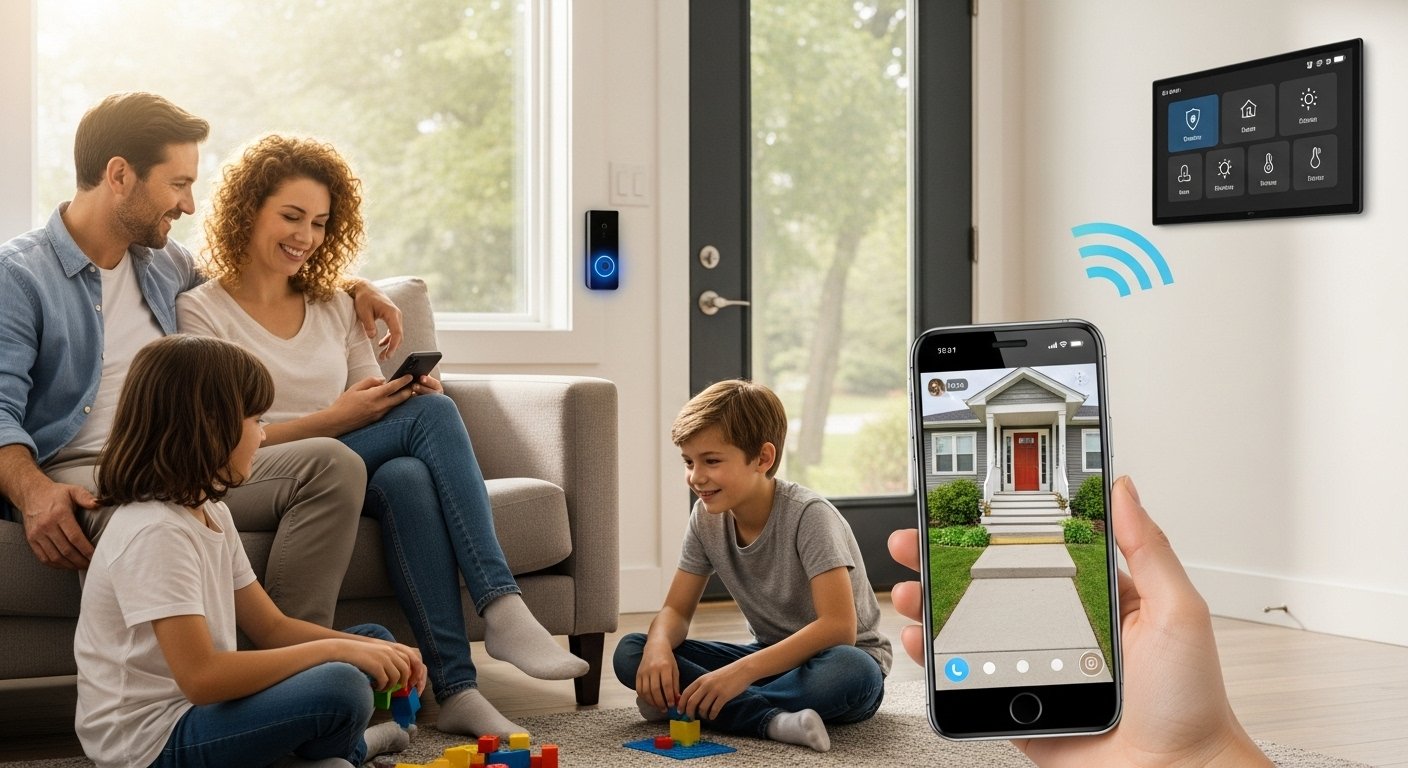
2. Significant Energy Efficiency and Cost Savings
Smart homes are synonymous with Energy Efficiency, offering substantial opportunities for smart home energy saving. This directly addresses the question, “How can smart homes save money?” Smart thermostats, for instance, learn your daily routines and adjust heating and cooling accordingly, optimizing energy use. Smart lighting systems allow you to control lights remotely or set schedules, preventing unnecessary power consumption. Data shows that 56% of smart home adopters report lower energy bills after installing connected devices. The U.S. Environmental Protection Agency (EPA) highlights how its ENERGY STAR Smart Home Energy Management System (SHEMS) program helps consumers simplify, reduce, and manage their energy consumption, integrating devices like certified smart thermostats and lighting control for meaningful savings 12]. The American Council for an Energy-Efficient Economy (ACEEE) further details how smart thermostats can reduce HVAC energy consumption, with average savings of 8% in heating costs and 10% in cooling costs [13]. These innovative features lead to noticeable reductions in utility bills, making smart home technology a financially savvy investment. For more specific strategies, explore `[smart home energy savings hacks`.
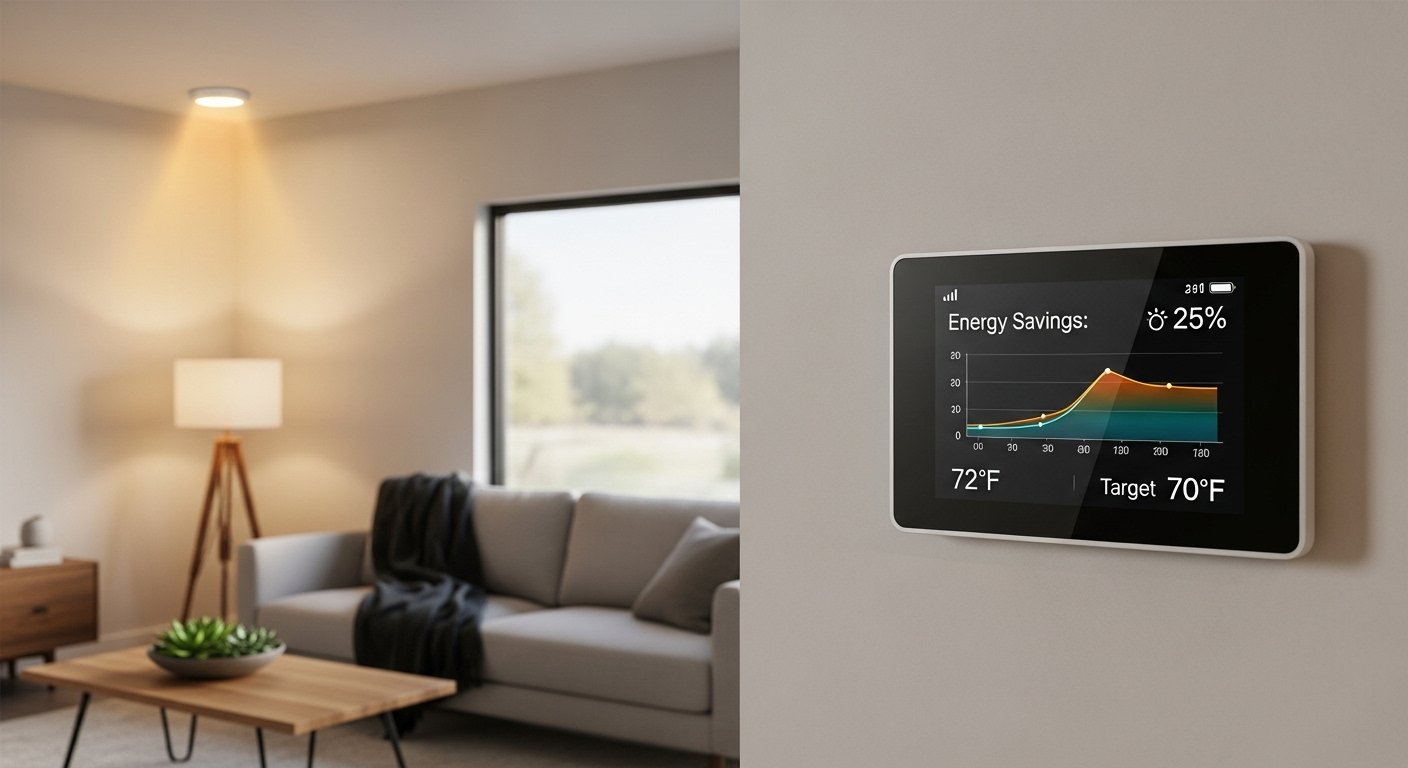
3. Unparalleled Convenience of Smart Home Technology
The convenience of smart home technology is a major draw for many users, answering the common query, “What are the convenience benefits of smart homes?” Imagine arriving home to perfectly lit rooms, a comfortable temperature, and your favorite music playing, all activated by your arrival. Personalized Automation allows you to set up routines that manage multiple devices simultaneously, such as a ‘Good Morning’ routine that opens blinds, turns on lights, and starts the coffee maker. Voice Assistants streamline control, allowing you to manage your entire home with simple spoken commands. This level of automated home advantages frees up valuable time and reduces daily friction, making life significantly easier.
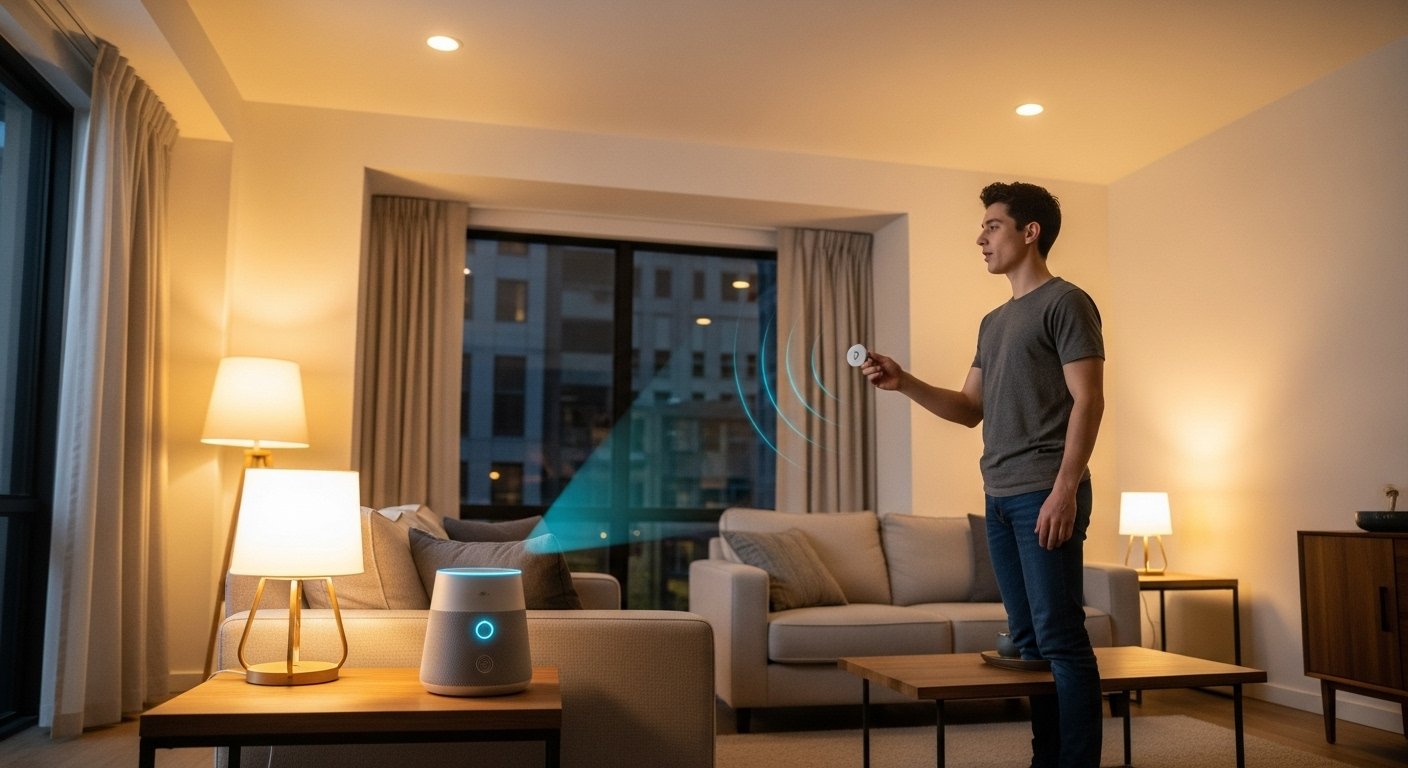
4. Increased Home Value and Resale Potential
Beyond personal comfort and security, installing smart devices in a home can tangibly increase its resale value by 5%. This increased home value smart home advantage is becoming increasingly important in the real estate market. Modern buyers, especially younger generations, prioritize homes equipped with advanced technological features. Properties with integrated smart systems like smart thermostats, advanced security setups, and automated lighting are often viewed as more desirable and future-proof. According to The Proptech Connection, a Coldwell Banker survey found that 77% of millennials are willing to pay more for a home equipped with smart features, driving up market value [2]. This makes a smart home not just a lifestyle upgrade, but a smart investment.
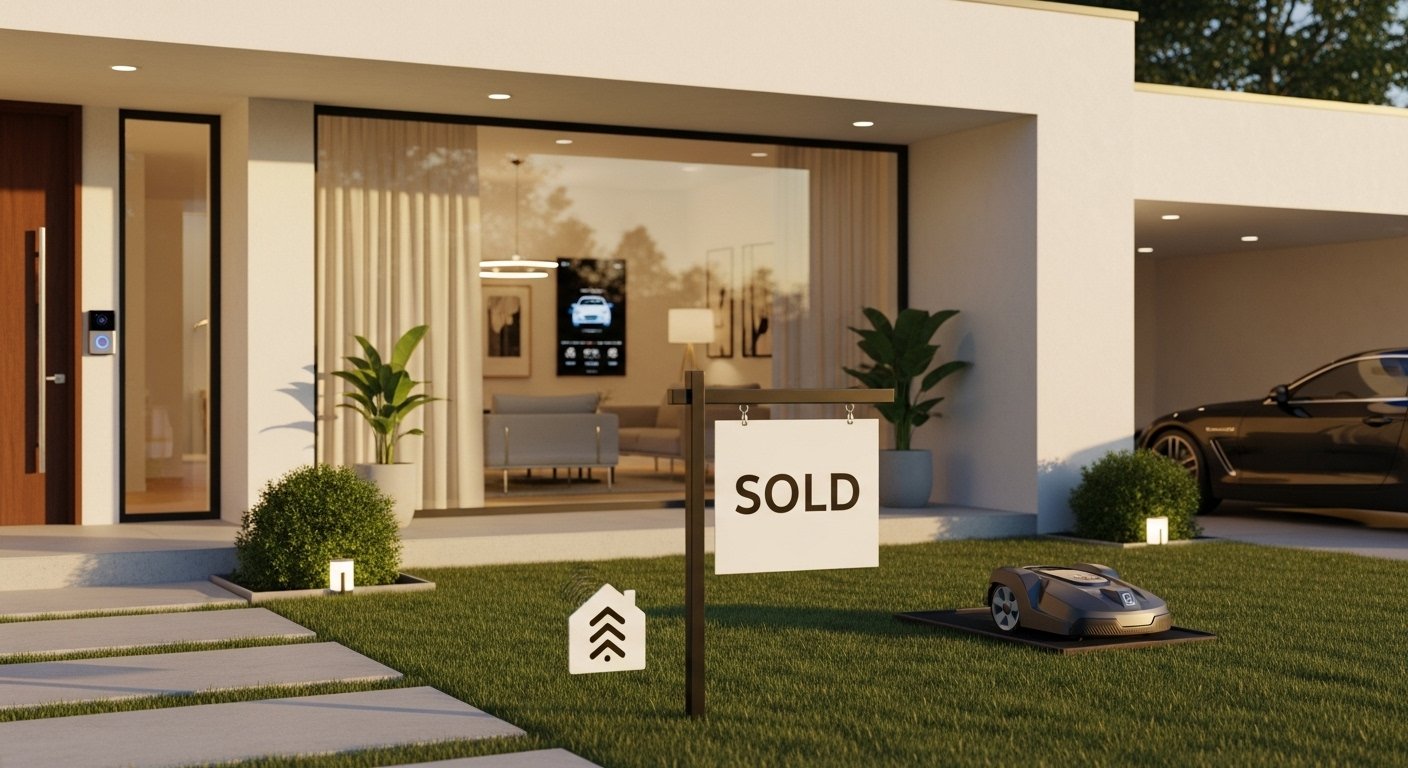
5. Personalized Living Experiences and Ultimate Comfort
Smart home technology allows for an unprecedented level of personalization, creating an environment tailored precisely to your preferences. Smart home comfort features include intelligent climate control that adapts to your body temperature, automated lighting that adjusts to natural light cycles, and multi-room audio systems that create the perfect ambiance. Through Personalized Automation, your home can anticipate your needs, learning your habits over time to automatically create the ideal living space. This fosters a sense of bespoke luxury and effortless comfort.
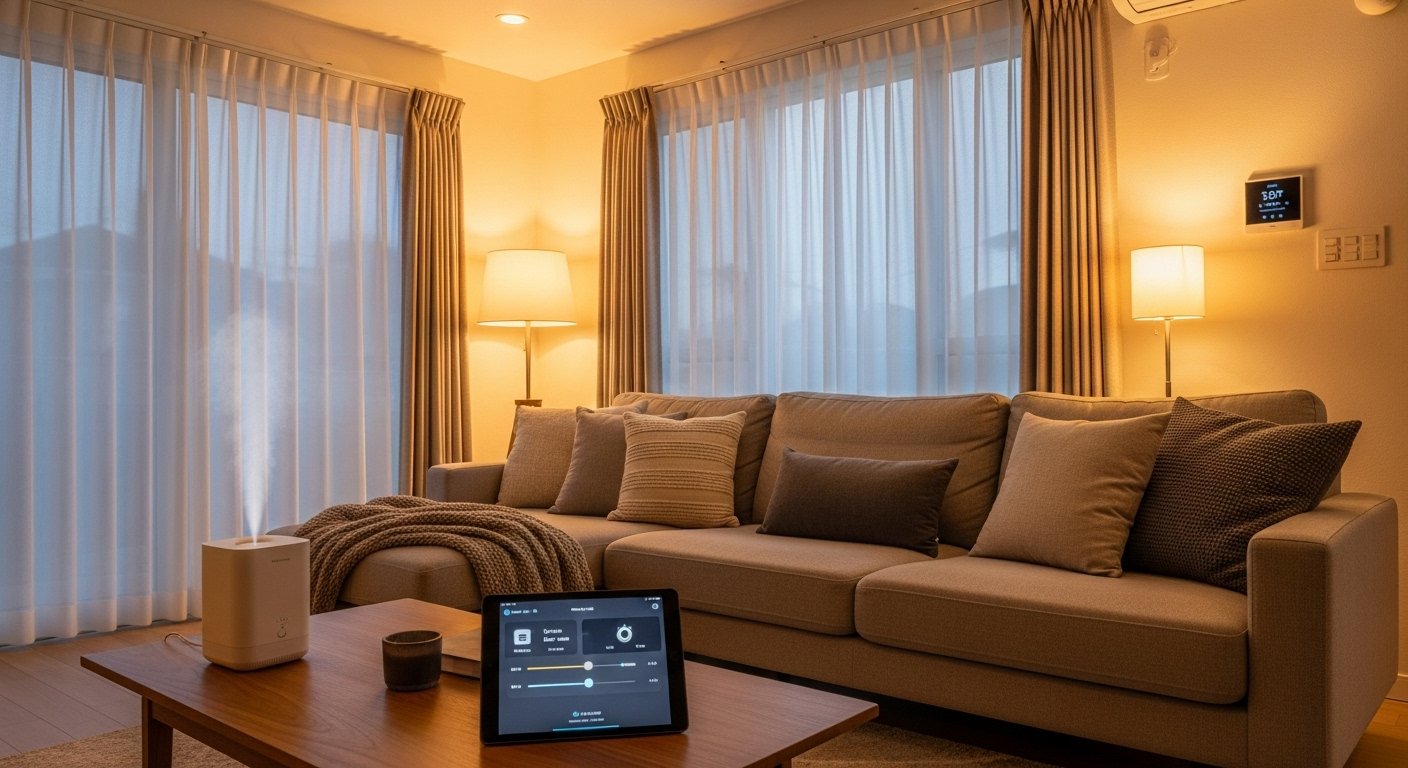
6. Remote Home Management from Anywhere
One of the most liberating home automation benefits is the ability to maintain Remote Home Control. Whether you’re at work, on vacation, or simply running errands, you can monitor and manage your home’s systems from virtually anywhere using your smartphone or tablet. Forgot to turn off the oven? Lock the front door? Adjust the thermostat? A few taps on an app are all it takes. This capability not only offers incredible convenience but also peace of mind, knowing that your home is secure and operating efficiently, no matter where you are.

7. Contributing to a Healthier Living Environment
Smart homes can significantly contribute to a healthier lifestyle, addressing the question, “How do smart homes contribute to a healthier living environment?” Integrated sensors can monitor indoor air quality, detecting pollutants and allergens, and activating smart air purifiers to maintain optimal air freshness. Smart lighting, especially tunable white lighting, can mimic natural daylight cycles, supporting circadian rhythms and improving sleep quality. Humidity control, water leak detection, and even smart gardening systems contribute to a more wholesome and clean living space, underscoring the broader benefits of smart living.
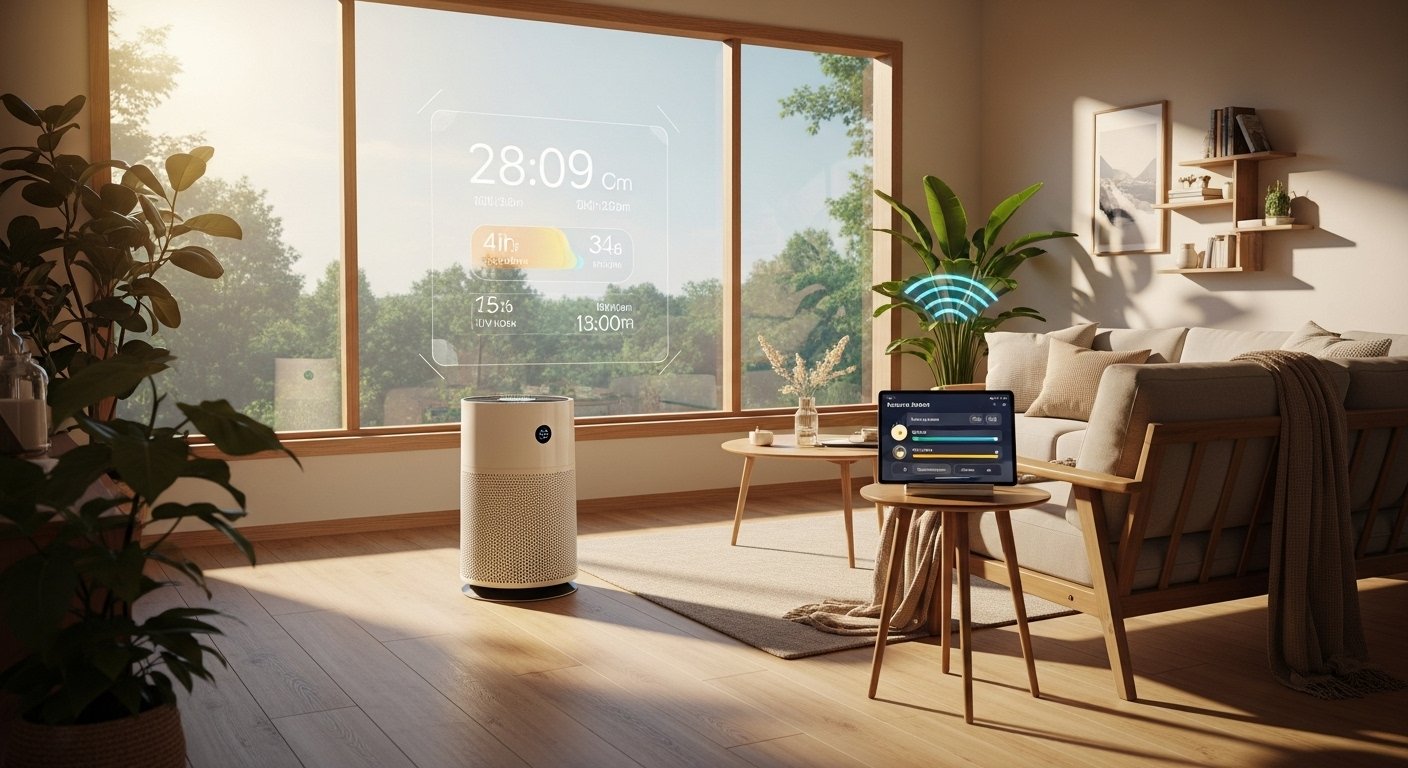
8. Enhanced Accessibility and Support for All
Smart home technology offers profound advantages for accessibility, making homes more inclusive for individuals with disabilities or the elderly. Voice-activated controls can assist those with mobility limitations, enabling them to manage lights, thermostats, and entertainment systems effortlessly. Smart sensors can detect falls or unusual activity, alerting caregivers or emergency services. This level of support promotes independent living and enhances the safety and comfort of all residents, ensuring that homes can adapt to diverse needs.
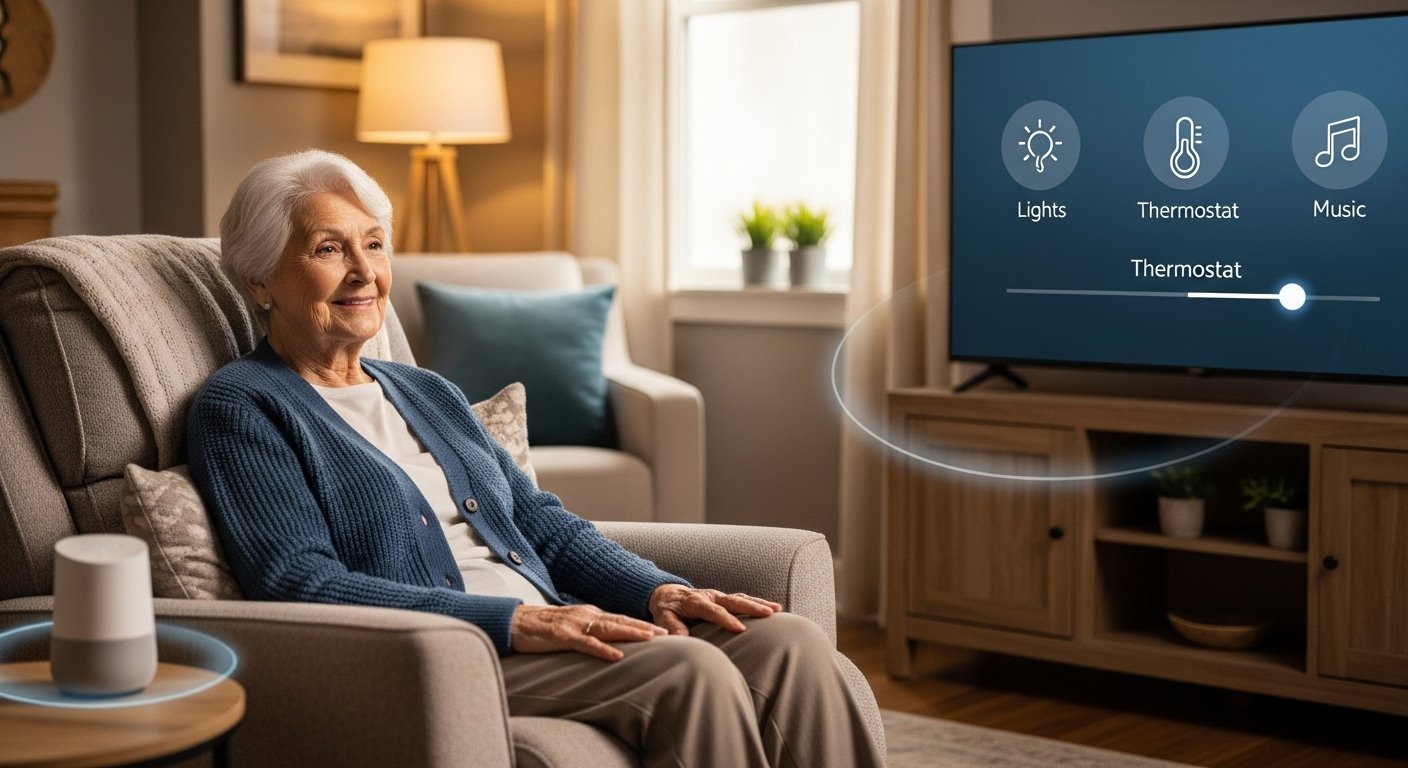
9. Seamless Interconnectivity and Ecosystem Integration
The power of smart home automation truly shines through its ability to create a seamlessly integrated ecosystem. With the advent of protocols like the Matter Protocol, different brands of IoT Devices can now communicate and work together effortlessly. This eliminates the frustration of incompatible systems, allowing for comprehensive Personalized Automation where your smart doorbell can trigger your smart lights, or your smart thermostat can communicate with your smart blinds. This cohesive integration simplifies management and unlocks new levels of automated functionality, making your home truly intelligent.
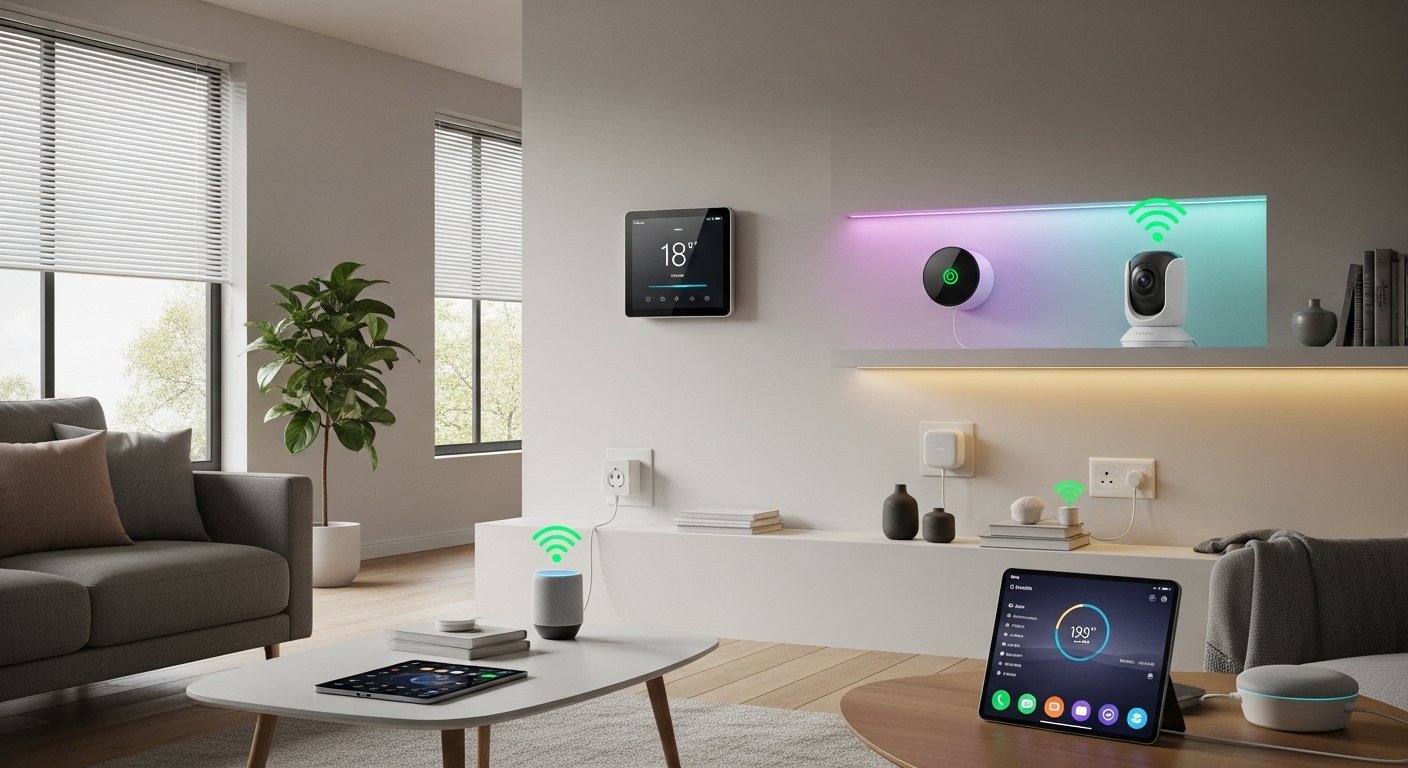
10. Future-Proofing Your Home: The Future of Smart Home Technology
Investing in smart home automation in 2025 is also about future-proofing your living space. As technology continues to evolve, smart homes are designed to adapt and integrate new advancements, ensuring longevity and relevance. The future of smart home technology promises even more intuitive AI, greater interconnectivity, and expanded capabilities. By embracing these systems now, you’re not just enjoying current conveniences but also positioning your home to readily adopt upcoming innovations, ensuring it remains modern and efficient for years to come. This foresight makes the smart home technology benefits 2025 a long-term investment in your property and lifestyle.
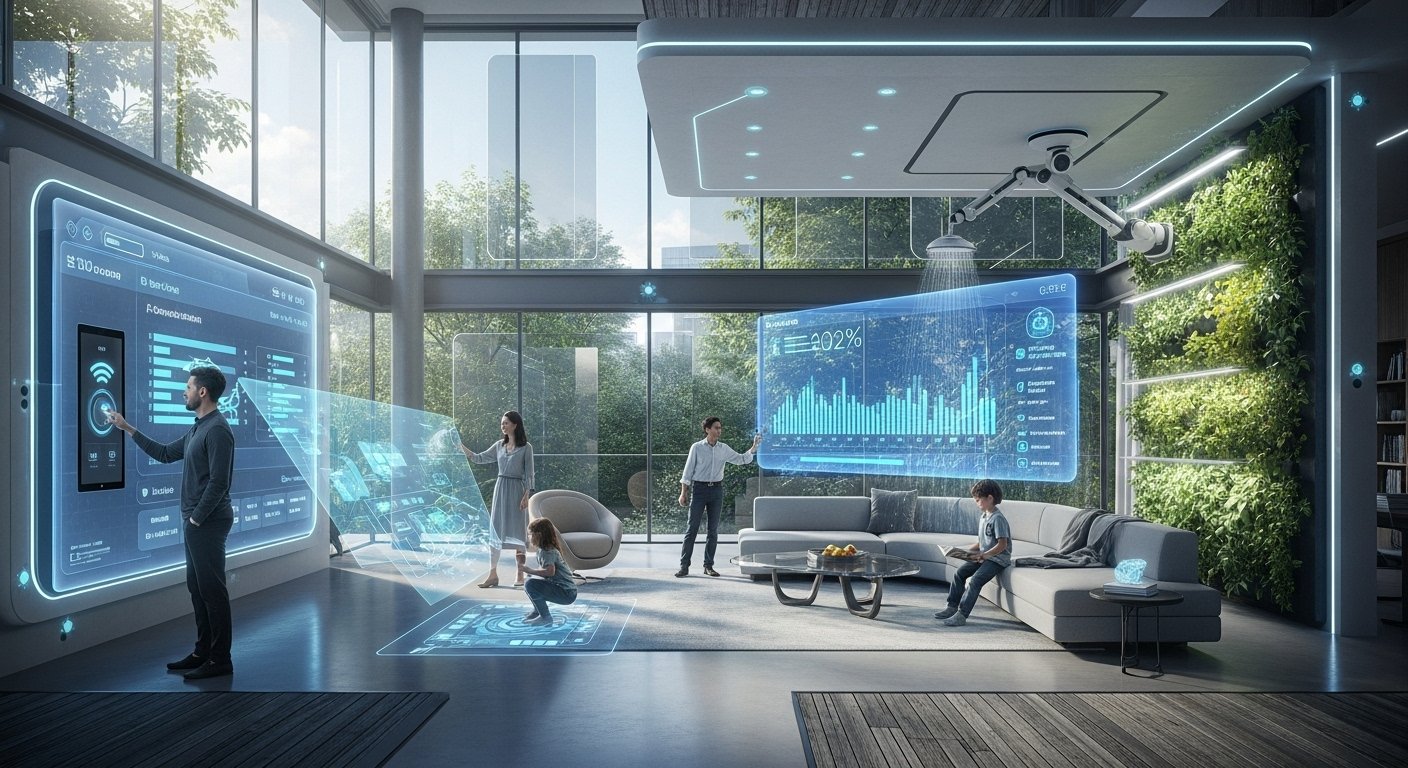
Is Smart Home Automation Worth It in 2025?
Considering the numerous advantages, the answer to “Is smart home automation worth it?” is a resounding yes. The integration of smart technology offers substantial improvements in security, energy efficiency, and daily convenience, addressing the main advantages of a smart home. The initial investment is often quickly offset by long-term savings and an enhanced quality of life. From managing your home remotely to creating personalized living environments, the smart home automation benefits streamline daily tasks, provide peace of mind, and even boost your property’s value. To delve deeper into less obvious advantages, you might find `7 hidden smart home benefits` insightful.
Smart home technology is continuously evolving, with new trends and devices emerging that promise even greater integration and intelligence. While there are considerations regarding the cost of smart home automation and how smart homes work, the overall trend points towards these systems becoming an indispensable part of modern living. By embracing this evolution, homeowners can enjoy a more comfortable, secure, and energy-efficient lifestyle.
Key Takeaways
- Smart home automation significantly enhances security with advanced systems and remote monitoring, reducing false alarms by up to 95%.
- It drives substantial energy efficiency, leading to lower energy bills for 56% of adopters and contributing to environmental sustainability.
- Smart technology offers unparalleled convenience through personalized automation and voice control, simplifying daily tasks.
- Integrating smart devices can increase a home’s resale value by up to 5%, making it a valuable investment.
- Smart homes create personalized and comfortable living environments, adapting to individual preferences and promoting well-being.
- Remote home control provides peace of mind, allowing users to manage their homes from anywhere in the world.
- Smart homes foster healthier living by monitoring air quality and optimizing lighting for better sleep and overall health.
- They improve accessibility for elderly residents and individuals with disabilities, promoting independent living.
- The Matter Protocol ensures seamless interconnectivity between diverse IoT Devices, creating a unified smart home ecosystem.
- Investing in smart home technology future-proofs your home, preparing it for upcoming technological advancements.
Frequently Asked Questions
What are the main advantages of smart home automation?
The main advantages of smart home automation include enhanced home security, significant energy efficiency and cost savings, unparalleled convenience, increased home value, personalized living experiences, remote home management, and contributions to a healthier living environment.
How can smart homes save money?
Smart homes save money primarily through energy efficiency. Devices like smart thermostats and lighting systems optimize energy consumption, reducing utility bills. For example, 56% of smart home adopters report lower energy bills after installation. Additionally, smart homes can increase property resale value.
Does smart home technology improve security?
Yes, smart home technology significantly improves security. Smart Security Systems offer features like remote monitoring, smart locks, video doorbells, and AI-powered sensors that reduce false alarms by up to 95%, providing advanced protection and peace of mind.
What are the convenience benefits of smart homes?
The convenience benefits of smart homes include personalized automation of routines (e.g., ‘Good Morning’ settings), voice-activated control over various devices, and the ability to manage home systems remotely. This streamlines daily tasks and makes living more effortless.
How do smart homes contribute to a healthier living environment?
Smart homes contribute to a healthier living environment by integrating sensors that monitor indoor air quality, activating purifiers when needed, and utilizing smart lighting to support natural circadian rhythms. They can also assist with humidity control and provide accessibility features for improved well-being.
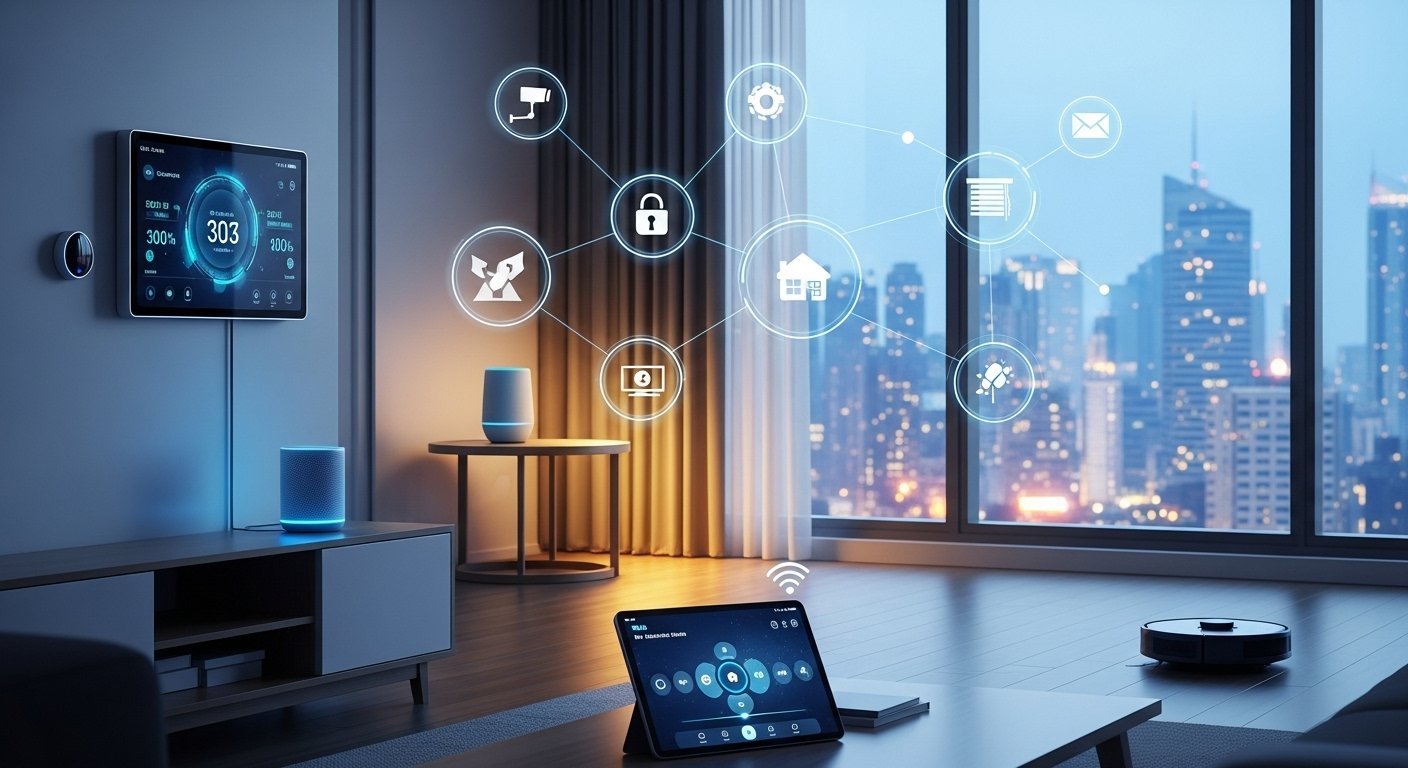
Leave a Reply